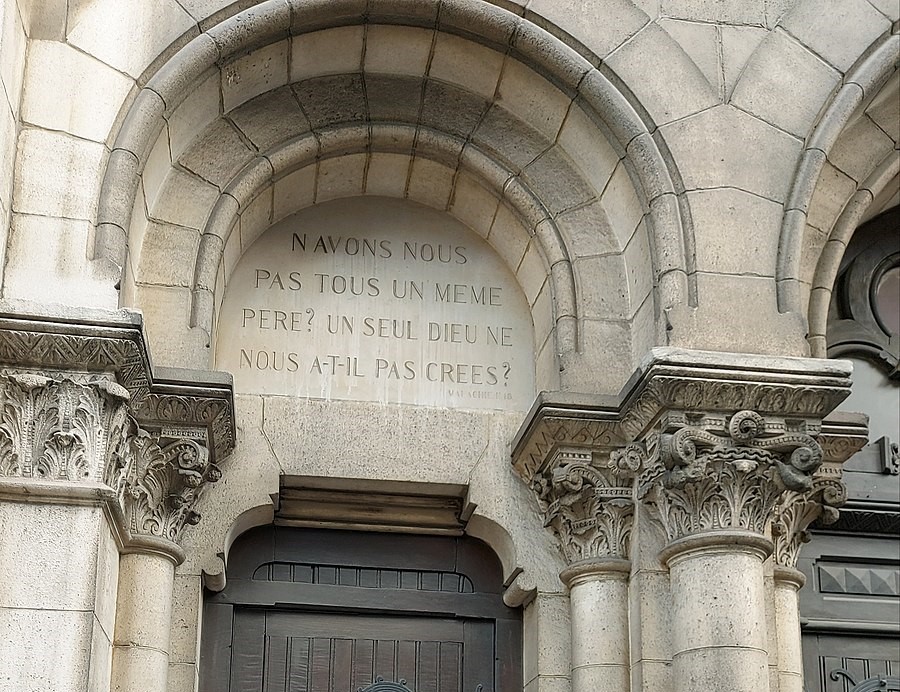Prime Minister Alexander De Croo replied recently in his response to an open letter from Jewish communities in Belgium that he is taking the fight against antisemitism seriously while at the same time reserving the right to criticize the current Israeli government for its handling of the war in Gaza.
As previously reported, De Croo responded on 24 April to the letter or email sent to him in beginning of April from the chairs of the ‘Comité de Coordination des Organisations Juives de Belgique’ (CCOJB) and the ‘Forum der Joodse Organisaties’ (FJO). According to Belga news agency, his response was made public last Saturday.
His cabinet did not respond to a request to comment on the open letter. In his public response on Saturday, the prime minister assured the Jewish community in Belgium that its concerns and opinions are of great importance to him.
“The federal government has strengthened security measures to protect the Jewish community in our country, prevent (antisemitic) incidents and, when they occur, repress them with appropriate severity,” he wrote. “I am your ally in the fight against antisemitism and I will continue to strengthen our arsenal of measures.”
Referring to complaints in the open letter about the lack of a national strategy on federal level against antisemitism, he added that he and the minister of justice, Paul Van Tigchelt, favour appointing an independent national coordinator.
In the second part of his reply, De Croo recalled that the Belgian government has several times “strongly condemned the barbarity of Hamas attack (on 7 October). Since then, the government has not ceased to demand the unconditional release of all the hostages. Israel has the right to defending and ensuring the security of its population, this is obvious.”
He writes that during his visit in Israel in November, he was able to see to “what extent the attack on 7 October shook Israeli society and to what extent the fight against terrorism is an existential fight for the country”. That said, he is equally concerned about the catastrophic humanitarian situation Gaza and refutes any allegation of being hostile against Israel.
“Criticism of the extreme-right government of Prime Minister Netanyahu must be possible, without ever being reduced to criticism of Israel,” he wrote, indirectly referring to pro-Palestinian voices that question Israel’s right to exist and defend itself. According to the open letter to him, some of the ministers in his government issued disturbing statements in that direction.
De Croo’s message to Israel is that Belgium will continue to advocate for an immediate ceasefire and the unconditional release of all Israeli hostages. The Israeli prime minister will probably not listen to him for political reasons. He has an interest in delaying new elections and is pressured by his extremist partners in the government not to accept a hostage deal which would lead to a permanent ceasefire.
Netanyahu has been announcing every day, and particular yesterday in connection with Israel’s commemoration of the Holocaust, that the war against Hamas will go on until “total victory”. Whatever the international community tells him, the offensive against Rafah will be launched with or without a hostage deal, which he has done his best to derail.
“Labeling the criticism of the Belgian government of the war in Gaza as antisemitic is both dangerous and counterproductive,” commented Dan Sobovitz, co-ordinator of another letter to De Croo which stated that foreign policy and the protection of the Jewish community in Belgium are separate domains and should not be conflated.
“It creates the false image that all Belgian Jews support the Netanyahu policies and therefore exposes them to illegitimate and antisemitic attacks for policies of a country they are not even citizens of.” He told The Brussels Times that he felt relieved to see in the prime minister’s answer that he remains consistent in his distinction between the Belgian government’s domestic and foreign policies.
The chairman of the Brussels-based European Jewish Association (EJA), Rabbi Menachem Margolin commented that he had read with satisfaction De Croo’s clarifications about the fight against antisemitism in Belgium and elsewhere. De Croo pledged to strengthen security measures to protect the Jewish community in the country and to appoint a national coordinator against antisemitism.
Margolin also expressed concerns about signs of hate speech in the streets of Brussels and recent protests at the University of Ghent, where pro-Palestinian student groups have staged protests and called on the university to disinvest in Israel and stop all research cooperation with Israeli universities and companies whether or not they are operating in occupied territories.

